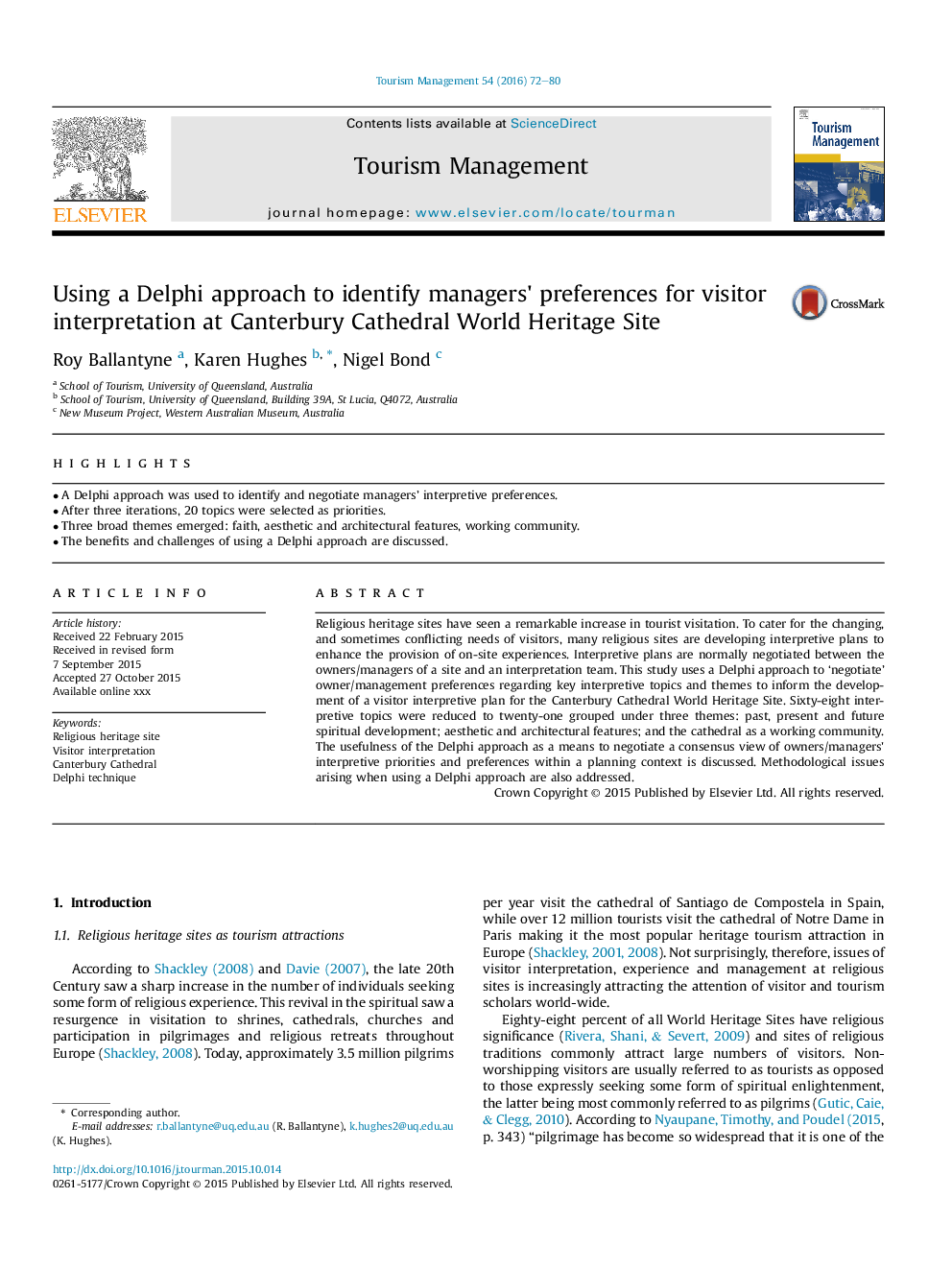| Article ID | Journal | Published Year | Pages | File Type |
|---|---|---|---|---|
| 7421604 | Tourism Management | 2016 | 9 Pages |
Abstract
Religious heritage sites have seen a remarkable increase in tourist visitation. To cater for the changing, and sometimes conflicting needs of visitors, many religious sites are developing interpretive plans to enhance the provision of on-site experiences. Interpretive plans are normally negotiated between the owners/managers of a site and an interpretation team. This study uses a Delphi approach to 'negotiate' owner/management preferences regarding key interpretive topics and themes to inform the development of a visitor interpretive plan for the Canterbury Cathedral World Heritage Site. Sixty-eight interpretive topics were reduced to twenty-one grouped under three themes: past, present and future spiritual development; aesthetic and architectural features; and the cathedral as a working community. The usefulness of the Delphi approach as a means to negotiate a consensus view of owners/managers' interpretive priorities and preferences within a planning context is discussed. Methodological issues arising when using a Delphi approach are also addressed.
Keywords
Related Topics
Social Sciences and Humanities
Business, Management and Accounting
Strategy and Management
Authors
Roy Ballantyne, Karen Hughes, Nigel Bond,
